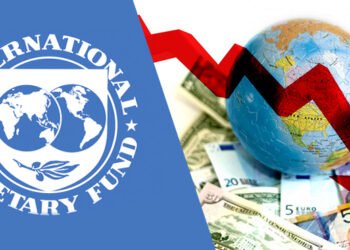The Ghanaian cedi, which only a few months ago was celebrated as the world’s best-performing currency, is now facing a dramatic reversal.
Driven by a surge in imports and an increased demand for U.S. dollars, the currency has weakened by 13% in the current quarter, according to data compiled by Bloomberg. This sharp depreciation represents the biggest decline globally, overshadowing the cedi’s 50% gain that had stunned markets earlier this year.
In the three months through June, the cedi’s strength was underpinned by soaring gold prices, which bolstered Ghana’s foreign reserves and market confidence. For a moment, the currency of Africa’s top gold producer was hailed as an unlikely global star. But as the year draws to a close, the story has shifted dramatically.
Import Pressures Trigger Dollar Shortages
Ghana’s import-dependent economy has long struggled with balancing foreign currency needs against domestic reserves. The holiday season has amplified this challenge, as businesses rush to stock up on food, machinery, and consumer goods ahead of Christmas. This surge in import demand has created an outsized appetite for dollars, putting pressure on the cedi.
Hamza Adam, head of market-risk management at UMB Bank Ltd., explained the strain. “As at last week, banks that filed dollar needs on behalf of their clients to the Bank of Ghana got about half of their requests,” he noted. “This week the central bank is trying to meet all demand.”
Despite these efforts, the Bank of Ghana’s limited ability to provide adequate foreign currency has fueled depreciation, with the cedi trading at 11.9507 per dollar in early Accra sessions.
The Bank of Ghana faces a difficult balancing act. With gross international reserves reaching $11.1 billion by the end of June — the highest in three years — the central bank theoretically has the resources to intervene. Yet, in practice, it has opted to restrict foreign exchange supply, aiming to maintain long-term stability rather than burn through reserves to satisfy short-term demand.
In response, the central bank emphasized its cautious approach, stating “The cedi should be stable within a reasonable range. Our role at the Bank of Ghana is to ensure that fluctuations remain orderly, that they reflect fundamentals, and that they do not undermine confidence in the broader economy.”
This policy has frustrated some businesses and importers who see the limited supply of dollars as a major hurdle to trade and planning.
Broader Economic Implications
The cedi’s reversal has broader implications for Ghana’s economy, which heavily depends on imports to sustain consumer demand and industrial growth. A weaker cedi raises the cost of imported goods, fueling inflationary pressures that can hurt households and businesses alike.
Although the currency is still up 23% year-to-date, the rapid depreciation highlights the vulnerability of Ghana’s economy to external shocks and seasonal fluctuations. It also underscores the tension between a strong currency performance tied to commodity exports like gold and the structural realities of an import-driven market.
Meanwhile, analysts believe the cedi’s trajectory will depend on several key factors: global gold prices, foreign capital inflows, central bank intervention, and the scale of import demand during the holiday season. If gold maintains its strong performance, it may provide a buffer for Ghana’s reserves. However, unless the Bank of Ghana loosens its grip on forex supplies, demand-side pressures may continue to weigh heavily on the currency.
For businesses, the focus is on short-term adaptability — managing costs, hedging against currency risks, and securing critical supplies before further depreciation sets in. For policymakers, the challenge remains ensuring stability without compromising economic confidence.
READ ALSO: MTN Ghana Slips Slightly, But GSE Market Volume Hits 4.4m Shares























